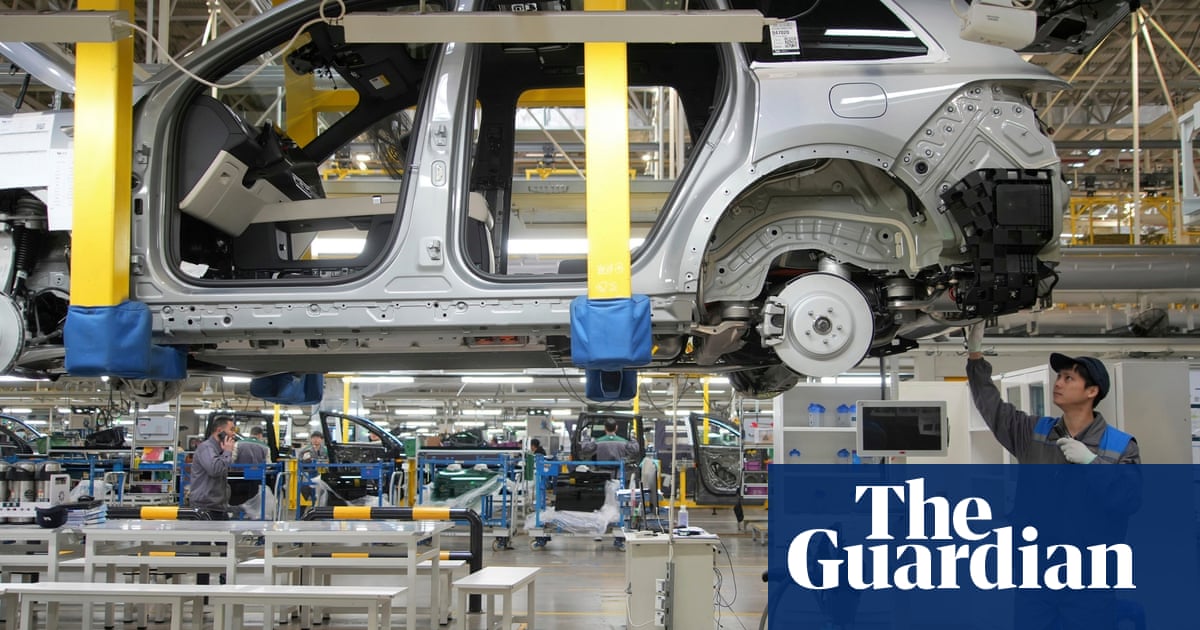So what are the details, how will it affect the industry and will the price of cars on the dealership forecourt be affected?
What are the tariffs?
The tariffs are aimed at countering the alleged state support handed to China’s car manufacturing industry, which has allowed exported vehicles to be sold at cheaper prices than those of global rivals.
It follows a nine-month investigation into alleged unfair state subsidies into Chinese battery electric vehicles (BEVs) and the level of the tariffs differ depending on the brand.
The MG owner, SAIC, faces the top tariff. Geely, which owns a stake in Volvo, faces a tariff of 20%. A 17.4% duty will be applied to BYD brands, which include the Dolphin and Seal cars launched in the EU last year.
EV manufacturers that cooperated with EU investigators will face a tariff of 21%, while those that did not face the top tier of 38.1%.
A 17.1% tariff will push the cost of an entry level €30,000 car up by €5,250. A 38.1% tariff will translate to a €11,450 increase in price.
The charges come on top of the existing 10% levy on cars imported into the EU, meaning Chinese-made EVs face total tariffs of up to 48%.
When will they kick in?
In theory, 4 July. But Chinese companies have until then to provide evidence to challenge the EU’s findings. The rates could then be adjusted.
The European Commission has held out the prospect of resolving the dispute through talks before the tariffs provisionally come into force on 4 July.
If a consumer ordered a car before this date and the price is already locked in they should avoid the price hikebut they should check their contract.
The EU believes that conglomerates like BYD can absorb the level of subsidy and still compete with European rivals by not completely passing tariffs on to the consumer.
What is the extent of the Chinese state support the EU alleges?
The EU contends that every stage of the EV manufacturing process, from the mine that produces lithium used in batteries to the shipping of cars to Rotterdam and Zeebrugge are subsidised in China by the state at national, regional and local level.
Its investigation also found cheap or free land given over to car factories.
It found there were case-specific subsidies with alleged provision of lithium and batteries below market price, with battery suppliers acting as public bodies implementing national industrial policy. It also found there were tax exemptions for the battery sector.
The investigation discovered a suite of financing advantages including green bonds issued at a lower rate than available in international markets and preferential refinancing rates for funds dispersed in support of the sector. Xi Jinping hopes to achieve global domination in the green tech sector, which also includes solar panels, heat pumps and wind turbines.
What is the impact on the European industry?
The EU claims that the state support not only enables Chinese car suppliers to directly undercut European rivals, but is causing the slowdown of the EU’s transition from internal combustion engines (ICE) to BEVs. The EU plans to end the sale of new ICE cars by 2035.
According to the EU, China-made cars accounted for 25% of the EU market in 2023, up from 3.9%.
The EU argues that the brutal trade wars in China that have forced prices down at home are now being played out in Europe, with China effectively forcing EU manufacturers to suppress their own prices and in turn hurting their profits and future potential investment.
What have the Chinese said?
A spokesperson for the Chinese foreign ministry, Lin Jian, said the EU’s investigation was a “typical case of protectionism” and tariffs would damage China-EU economic cooperation and the stability of production and supply chains of vehicles globally.
He said Beijing would take all necessary measures to “firmly safeguard” its rights and interests.
What has the German government said?
It is not happy. Not only are its carmakers facing competition at home but an impending trade war will be a blow to its exports to China.
“The European Commission’s punitive tariffs hit German companies and their top products,” said the German transport minister, Volker Wissing.
China is an important market for Germany’s carmakers – in particular Volkswagen, Europe’s largest auto manufacturer, which has a joint venture with SAIC.
Olaf Scholz, the chancellor, has noted that half of EVs imported from China were produced by western manufacturers.
What have German car makers said?
After the EU announcement, Volkswagen said it rejected the imposition of the duties.
“The negative effects of this decision outweigh any potential benefits for the European and especially the German automotive industry,” a Volkswagen spokesperson said.
Germany’s VDA auto industry association said it was in favour of “free and fair trade”.
The Mercedes-Benz chief executive, Ola Källenius, added his voice to the concerns, saying that “what we do not need, as an exporting nation, is rising trade barriers”.
And what about other manufacturers?
Sweden’s Volvo has said it is “analysing” developments in the investigation, Vauxhall owner Stellantis said it “does not support measures that contribute to the world fragmentation” and Chinese EV maker Nio said that “this approach hinders rather than promotes global environmental protection, emission reduction, and sustainable development”.

